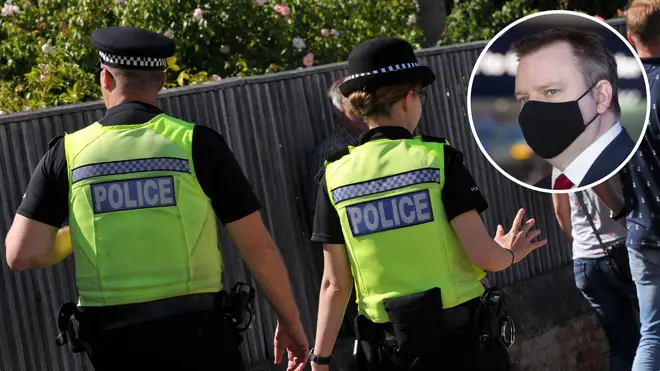
Oli Dugmore 4am - 7am
27 September 2021, 22:36

Labour has pledged to "bring back neighbourhood policing" with a plan to boost the "eyes, ears and boots on the ground" and a major recruitment drive for volunteer officers.
Shadow home secretary Nick Thomas-Symonds set out a vision for a national rollout of "police hubs" with their own neighbourhood crime prevention teams to crack down on anti-social behaviour.
A "next generation neighbourhood watch" using technology including video doorbells and WhatsApp groups would be tasked with bringing people together to share information to tackle crime.
Mr Thomas-Symonds will accuse the Tories of being "soft on crime and soft on causes on crime" as he sets out his plans for a possible Labour government at the party conference on Tuesday.
Read more: Military on standby to tackle fuel crisis, Govt confirms
Read more: Labour takes aim at Amazon as party pledges to scrap business rates
"In Tory Britain, people say you never see police on the beat any more. That school children feel afraid at the bus stop. That people feel unsafe going out after dark," he is expected to tell supporters in Brighton.
"This is the price of years of Tory cuts to neighbourhood policing.
"With me as home secretary, if there is trouble on your street Labour will make sure that someone is there. You will see officers on the beat."

Labour MP insists Corbynist policies will not fly with voters
The police hubs would be visible and easy to access for communities, and each neighbourhood crime prevention team would be tasked with bringing together police, community support officers and youth workers to tackle anti-social behaviour at its roots.
Modern technology would be used for neighbourhood watch groups to rapidly share information so issues such as drug dens could be shut down swiftly.
This would be powered in part by a "major recruitment drive" to increase the number of special constables, with Labour saying the number of unpaid officers has fallen sharply over the last decade.
Read more: Andy McDonald quits shadow cabinet with scathing attack on Keir Starmer
Read more: Number of migrant crossings so far this year more than double figure for 2020
Labour also set out plans for a new child exploitation register which would see those convicted of modern slavery offences linked to county lines drug dealing added to a list similar to the sex offenders register.
MPs hope the move would help monitor offenders and increase the stigma attached to such crimes.

Iain Dale puts to Labour MP that conference has been disastrous
The opposition plans to fund the proposals to tackle anti-social behaviour by scrapping Boris Johnson's new maritime national flagship, set to cost an estimated £200 million to build and £83 million a year to run.
Labour also wants to tackle the underlying causes of addiction as part of its policy on drugs.
Party leader Sir Keir Starmer has backed Scotland's move to allow officers to issue police warnings to people caught in possession of class A drugs, rather than prosecuting them.
The scheme will allow police to use their discretion in cases of individual use, while those caught supplying drugs to others will still face criminal charges.
Read more: Labour MP struggles to answer if it's 'transphobic to say only women have a cervix'
Read more: How long could it take to fix the UK fuel crisis?
Mr Thomas-Symonds said at a conference fringe event on Sunday that the leadership might adopt a similar policy in England and Wales.
"Keir and I are not in favour of changing the drugs legal framework but within that we have to be tackling the underlying causes of addiction. Part of that has always been about non-court disposals for possession," he said.
"We've had the use of cautions across England and Wales for many, many years, the Scottish lord advocate is talking about the use of warnings.
"I don't know if that is effective decriminalisation. What you are actually doing is trying to deal fundamentally with the problem within the legal framework we have."